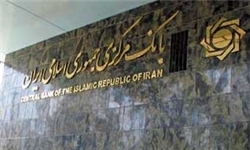 Feb 25 (Reuters) - Iran's inflation is continuing to rise and is likely to top 30 percent in coming weeks as economic sanctions contribute to shortages and stockpiling by anxious consumers, the central bank governor was quoted as saying on Monday.
Feb 25 (Reuters) - Iran's inflation is continuing to rise and is likely to top 30 percent in coming weeks as economic sanctions contribute to shortages and stockpiling by anxious consumers, the central bank governor was quoted as saying on Monday."The reduction in supply of some product lines and the psychological effect of concern about access to goods have led to inflation," the Iranian Students' News Agency quoted Mahmoud Bahmani as saying at a conference on monetary policy.
Bahmani said output in areas such as dairy products, vehicles and ferrous and non-ferrous metals had dropped, prompting consumers to buy out of concern they could lose access to such goods.
His remarks were an unusually frank description by a government official of an economy which has been hit hard by U.S. and European sanctions imposed over Iran's disputed nuclear programme.
The country has been largely frozen out of the international banking system, disrupting its trade and prompting a sharp depreciation of the rial currency last year. A weaker rial has raised prices of imported goods and made it difficult for some factories using imported parts to operate.
Year-on-year inflation hit 27.4 percent at the end of 2012, according to official data; including imported goods, actual inflation is believed to be roughly twice as high.
Bahmani was quoted as saying on Monday that the inflation rate had reached 28.7 percent in mid-January and was estimated at 29.8 percent in mid-February. It is now forecast to rise to between 30.6 and 31.5 percent at the end of the Iranian calendar year, which falls on March 19, he added.
Initially, officials expected inflation to reach 40 percent by the end of the Iranian year, "but with controlling measures implemented by the central bank, it has remained at this level," Fars news agency quoted Bahmani as saying.
The report did not describe the measures, which may have included action to limit consumers' access to credit and allocations of foreign exchange to ease import bottlenecks.
Bahmani has come under attack from members of parliament over the slide of the rial; in the free market, it lost about a third of its value over 10 days last September to hit a record low against the U.S. dollar. Last month Bahmani offered to resign, but President Mahmoud Ahmadinejad rejected the offer.
Iran has suffered double-digit inflation rates for most of the past decade. Inflation began rising sharply at the end of 2010, before the latest sanctions were introduced, when the government slashed food and fuel subsidies.
By Reuters
The Iran Project is not responsible for the content of quoted articles.










